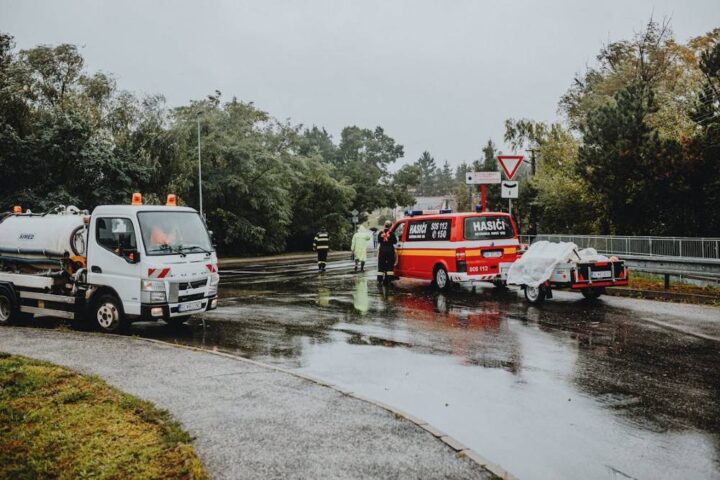What Federal Trucking Laws Mean For Your Truck Accident Case
A truck accident differs from typical motor vehicle incidents since it combines large commercial vehicles, rigorous federal regulations, and well-prepared trucking businesses, which protect their legal exposure. Here, federal trucking laws determine how these cases are handled.
FMCSA oversees a set of safety regulations that require truck operators to maintain precise safety guidelines to minimize traffic accidents. Following a truck accident, the established laws function to identify which party holds accountability and establish the compensation amount you are entitled to receive.
A violation such as an overworked driver, neglected brake maintenance, or truck loading beyond capacity serves as essential proof in your compensation claim. The knowledge about these regulatory laws determines whether you secure proper compensation for your case or end up empty-handed.
The following guide explains how federal trucking regulations will enhance your opportunities in truck accident cases.

Key Federal Trucking Laws That Impact Accident Cases
Trucking is one of the most heavily regulated industries out there in the U.S. Even a minor mistake with commercial trucks weighing as much as 80,000 pounds can be disastrous.
The federal trucking laws, which are enforced mainly by the Federal Motor Carrier Safety Administration (FMCSA), are established to ensure safe roads. Nevertheless, violations can be used as critical evidence in accident claims when violations occur.
Unfortunately, these regulations are very complex, and as a result, it is imperative to work with an attorney who is well knowledgeable in local and federal trucking laws. For instance, if you got involved in a truck accident in Little Rock, Arkansas, a Little Rock truck accident lawyer can use key federal regulations to build a strong case and get you the compensation that you deserve.
However, let’s take a look at how some of the most significant regulations influence trucking accident cases.
1. Hours of Service (HOS) Regulations
Federal Hours of Service (HOS) laws determine the maximum working hours for truck drivers to reduce fatigue-related accidents on the roads.
The key rules include:
- 11-hour driving limit within a 14-hour workday after 10 consecutive off-duty hours.
- 60/70-hour weekly limits, taking necessary breaks to avoid exhaustion.
- A must 30-minute rest period after driving continuously for eight hours.
Despite the legal protections in place, fatigue continues to remain a substantial reason for trucking accidents. Some drivers or trucking companies violate HOS regulations to fulfill strict delivery deadlines.
Electronic logging devices (ELDs) track compliance violations, which can function as strong evidence of driver negligence by showing exceeding legal driving limits before an accident.
2. Vehicle Maintenance and Inspection Requirements
The law requires trucking companies to conduct periodic checks on their vehicles to prevent dangerous mechanical problems.
Federal regulations mandate:
- Drivers must conduct daily vehicle inspections before starting their scheduled trips.
- Regular inspections of brakes, tires, lights and essential parts of vehicles should be performed at set intervals.
- Detailed records of repairs and inspections.
3. Driver Qualification Standards
Commercial truck driving requires specific qualifications that not all individuals possess. Federal laws operate with strict standards to qualify drivers.
- A valid commercial driver’s license (CDL)
- Completion of FMCSA-approved training programs
- Must pass fitness tests to secure a job
4. Drug and Alcohol Testing Regulations
Commercial truck drivers need to obey zero-tolerance restrictions on drug and alcohol use, which include:
- Pre-employment drug screening
- Random drug and alcohol testing throughout employment
- Post-accident test after any crash that causes injury or death of people
Post-accident driver testing results can transform the entire legal case when drivers test negatively. Trucking companies remain accountable for policy enforcement because their failure to conduct proper testing might result in shared liability outcomes.
5. Cargo Loading and Weight Restrictions
Trucks become a ticking time bomb when either overloaded or improperly secured cargo. Federal laws regulate:
- Weight restrictions help minimize rollovers and brake malfunctions during transport operations.
- Cargo securement rules stop shifting loads from resulting in loss of control.
How Federal Trucking Laws Affect Your Case?
Accident liability and fault determination in trucking cases heavily depend on federal trucking regulations. Any legal violations found in commercial trucks due to federal oversight act as concrete proof of negligence.
Federal trucking regulations impact your case in the following way.
1. Proving Negligence Through Regulation Violations
Federal laws that are violated following truck accidents provide crucial proof to establish negligence. Evidence of safety regulation violations by truckers or trucking companies will support your legal position.
The most often recorded violations amongst commercial vehicles include the following.
- The violation of HOS limits causes truck drivers to fall asleep while operating their vehicles.
- Not performing essential vehicle checks poses an increased threat of equipment breakdown.
- Unsecure and excessive cargo creates challenging conditions for controlling the truck.
- Failure to conduct drug and alcohol tests creates unsafe conditions that result in unfit drivers operating on public roads.
Your attorney will need vital evidence to prove liability, which consists of the following.
- Truck Logs: This log indicates whether the driver exceeded safe and legal driving limits.
- Maintenance Records: The attorney needs to prove whether the truck was properly inspected and maintained.
- Black Box Data: The device tracks speed, braking functions, and driver behaviors just before a collision occurs.
2. Liability Beyond the Truck Driver
People typically believe truck drivers bear sole responsibility for accidents, yet legal liability extends to additional parties. Under trucking laws, it is recognized that multiple parties can be responsible for accidents.
- Trucking Companies: The law mandates organizations to conduct training sessions for drivers to uphold safety standards for their vehicles and enforce proper rest time for their employees.
- Cargo Loaders: A trucker must adhere to weight restrictions while securing goods to prevent shifting loads.
- Manufacturers: Faulty truck components, including brakes or tires, could make such companies accountable for crash-related damages.
3. Role of Federal Investigations in Strengthening Your Case
When severe truck accidents occur, federal organizations, including the Federal Motor Carrier Safety Administration (FMCSA), may investigate.
Their role includes:
- The investigator examines driver logs and trucking company records to find evidence of regulatory violations.
- Black box data from the truck, alongside its maintenance records, will be inspected.
- The driver is required to undergo tests that check for drug and alcohol consumption levels.
Your legal case benefits from the information contained within reports issued by FMCSA investigators. Any discovered violations of federal laws within their investigations will serve as compelling evidence to boost your claim.
Conclusion
Having knowledge about federal trucking regulations improves the quality of your case by identifying liability and all responsible parties involved in your accident. The driving safety regulations are designed to protect motorists, yet victims have the right to seek justice if these laws are not followed.
Building a solid case requires immediate action when collecting evidence. Legal assistance serves as an essential tool for compensation after trucking accidents because of their multifaceted nature.
Consult an experienced attorney after a trucking accident to navigate the legal process and secure the optimal compensation you deserve.


